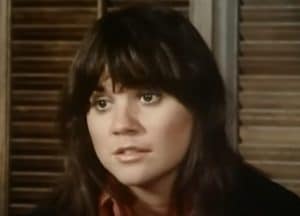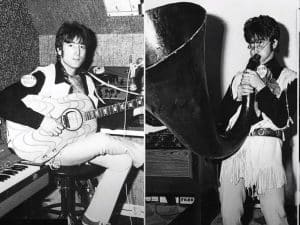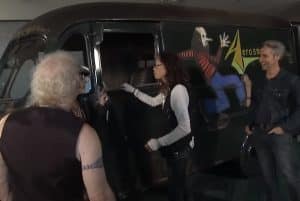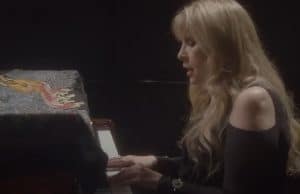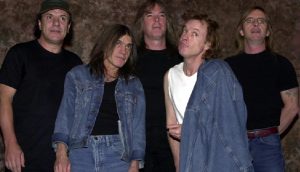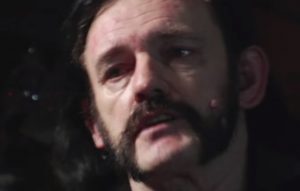Ever Heard Of Frank Zappa’s “Stariway To Heaven”? – You Can Now
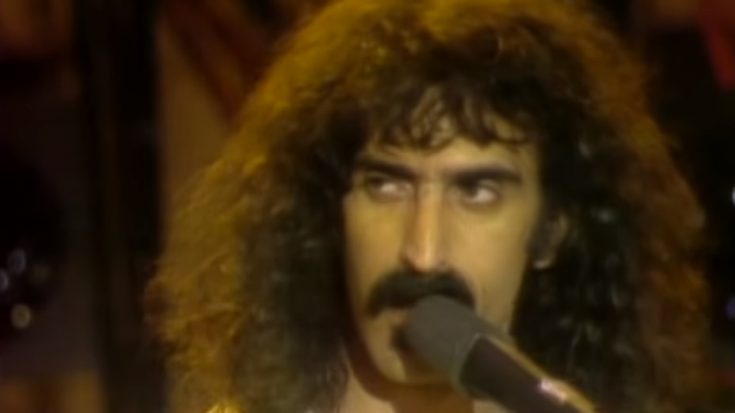
Frank Zappa live in 1974 - Eagle Rock / Youtube
In a surprising turn of events in October 2023, former Led Zeppelin frontman Robert Plant took the stage after 16 years to perform “Stairway to Heaven”. The catalyst for this unexpected performance was a generous six-figure donation to The Cancer Awareness Trust.
Despite Plant’s well-known disdain for the song – dates back to 1988 when he called it “that bloody wedding song” – he set aside his personal feelings to contribute to the charitable cause, adding a unique chapter to the ongoing saga of his complex relationship with one of Led Zeppelin’s most iconic compositions.
Adding a unique twist to the legacy of “Stairway to Heaven”, the avant-garde musician Frank Zappa covered the classic during his final tour in 1988. Zappa, known for his experimental approach to music, assembled an extraordinary backing band that for the cover.
“All those little effects and things coming in, that’s just the way it was on the live show,” he added,” the musician shared. Hear Zappa’s take below:
Frank Zappa’s unconventional rendition
Zappa combined a robust horn section with electronic elements and unconventional sound effects to achieve his version. The cover, performed in Vienna, Austria, showcased Zappa’s ability to blend diverse musical elements and create a rendition that was both innovative and unexpected.
“[The band] was unique because it combined a very strong five-piece horn section with all kinds of electronic stuff, with effects on the percussion section, on the drums, multiple keyboards—a very interesting blend of this horn harmony and very strange sound effects,” the experimental maestro told Guitarist Magazine.
He went on to describe the three stations responsible for generating samples during the show, highlighting the unique contributions of Ed Mann, who possessed an extensive repertoire of dog barks, bubbles, and unconventional sounds, and Chad Wackerman, who employed a complex setup of peculiar percussion instruments.
Additionally, he mentioned the synclavier, which he could play when not engaged with the guitar.
Plant’s complex relationship with “Stairway”
In the multifarious lore of rock and roll, “Stairway to Heaven” continues to be a subject of fascination, eliciting varied reactions from artists and fans alike.
Whether it’s Plant’s reluctant performance for charity, Page’s insightful reflections on the composition, or Zappa’s avant-garde cover, the song’s enduring legacy transcends its polarizing reputation.
Robert Plant’s sentiments remained unchanged for a long time, and in a 2019 radio appearance, he acknowledged the song’s musical brilliance while critiquing its lyrics and vocals.
Plant’s willingness to perform the song for charity adds a unique chapter to the ongoing saga of his complex relationship with one of Led Zeppelin’s most iconic compositions.
Jimmy Page’s artistic vision for the iconic song
While Plant may have reservations about the song, Led Zeppelin guitarist Jimmy Page has maintained a more positive perspective. Page shared insights into the intricate composition of “Stairway to Heaven”, explaining the evolution of the music and its emotional layers.
He discussed the addition of recorders, suggested by John Paul Jones, and emphasized the intentional acceleration of intensity throughout the song. Page’s commitment to creating a multi-dimensional piece highlights the band’s dedication to pushing musical boundaries.
The guitar maestro continued, “The idea of “Stairway” was to have a piece of music, a composition, whereby it would just keep on unfolding into more layers, more moods. The subtlety of the intensity and the overlay of the composition would actually accelerate as it went through on every level, every emotional level, every musical level, so it just keeps opening up as it continues through its passage.”
Reflecting on his time as a session musician, he pointed out a cardinal rule that discouraged speeding up during performances. Expressing his eagerness to explore a different approach, he emphasized the desire for acceleration not only musically but also in the lyrics.




